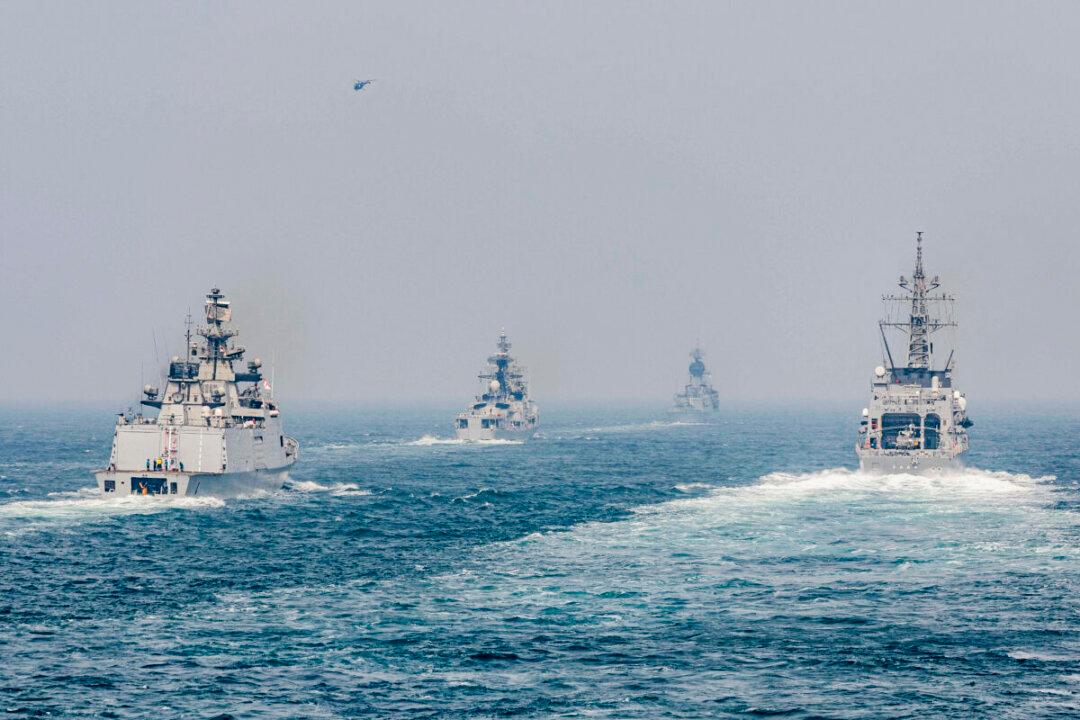Naval forces from Australia, India, Japan, and the United States participated in Malabar 2021 during the last week of August, giving the nations’ forces a chance to further develop cohesion in planning, training, and the employment of advanced warfare techniques.
Malabar is an annual military exercise that began as a joint initiative between the United States and India in 1992. Since then, the exercise has evolved considerably with ongoing developments in international relations and has seen other nations get involved at various points in time.




